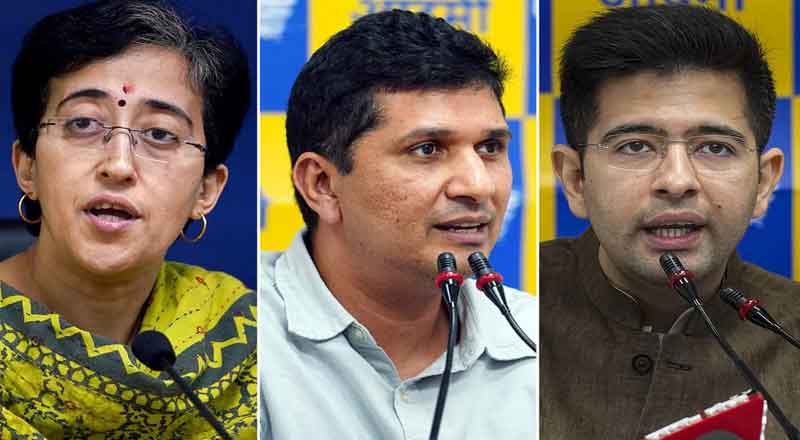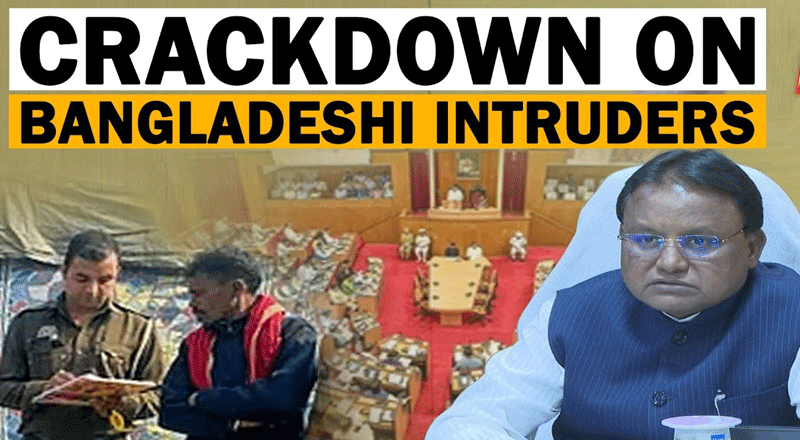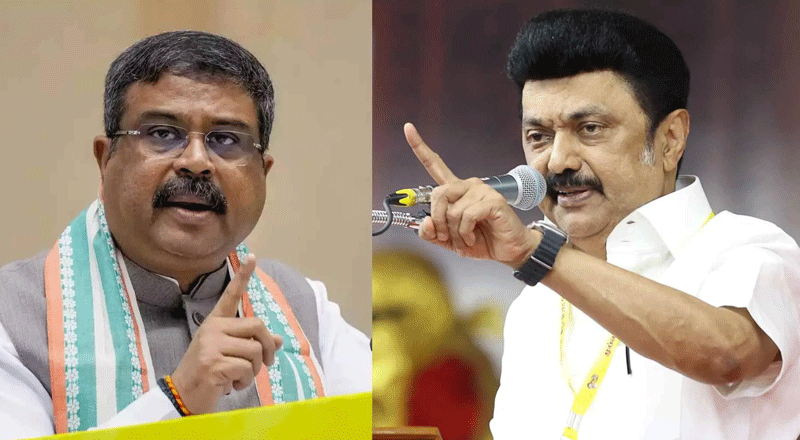- Atishi has made startling allegations against the BJP, claiming an offer to defect and warning of impending arrests for several senior leaders of the Aam Aadmi Party (AAP).
- Atishi’s allegations suggest a concerted effort by the BJP to undermine AAP’s leadership by coercive means, including leveraging central agencies.
- These purported maneuvers, she contends, form part of a wider strategy to dismantle AAP’s political stronghold in Delhi.
- The gravity of Atishi’s claims is compounded by her assertion that four more prominent AAP leaders are slated for arrest within the next two months.
- Kejriwal’s judicial custody until April 15 has sent shockwaves through AAP’s ranks, amplifying tensions between the two rival parties.
- Kejriwal’s return to Tihar Jail evokes memories of his previous imprisonment in 2014 over a defamation case, casting a shadow over AAP’s leadership.
In a dramatic turn of events, Atishi, a prominent Delhi Minister, has made startling allegations against the Bharatiya Janata Party (BJP), claiming an offer to defect and warning of impending arrests for several senior leaders of the Aam Aadmi Party (AAP). These revelations come amidst a tense political climate in the capital, marked by escalating tensions between AAP and BJP.
Atishi’s allegations suggest a concerted effort by the BJP to undermine AAP’s leadership by coercive means, including leveraging central agencies. She asserts that a BJP emissary, acting through a close intermediary, approached her with an offer to switch sides, accompanied by veiled threats of Enforcement Directorate (ED) action if she refused. These purported maneuvers, she contends, form part of a wider strategy to dismantle AAP’s political stronghold in Delhi.
The gravity of Atishi’s claims is compounded by her assertion that four more prominent AAP leaders are slated for arrest within the next two months. Among those allegedly targeted are Delhi Minister Saurabh Bharadwaj, AAP MP Raghav Chadha, and MLA Durgesh Pathak, signalling a systematic assault on AAP’s leadership echelon.
The timing of these allegations is particularly significant, coinciding with Chief Minister Arvind Kejriwal’s recent arrest in connection with a money laundering case linked to Delhi’s defunct liquor policy. Kejriwal’s judicial custody until April 15 has sent shockwaves through AAP’s ranks, amplifying tensions between the two rival parties.
As Atishi’s bombshell accusations reverberate through the political landscape, the BJP swiftly rebuffs them as baseless, attributing them to internal discord within AAP. Party spokesperson RP Singh insinuates a deeper power struggle within AAP, suggesting factional infighting over leadership positions.
The unfolding drama surrounding Atishi’s claims and Kejriwal’s incarceration underscores the volatile nature of Delhi’s political dynamics. With AAP and BJP locked in a bitter power struggle, the capital’s governance hangs precariously in the balance.
Kejriwal’s return to Tihar Jail evokes memories of his previous imprisonment in 2014 over a defamation case, casting a shadow over AAP’s leadership. Alongside Kejriwal, other AAP luminaries, including Manish Sisodia, Satyendar Jain, and Sanjay Singh, find themselves behind bars, further exacerbating the political turmoil gripping the city.
Meanwhile, the presence of Bharat Rashtra Samithi leader K Kavitha, daughter of former Telangana Chief Minister K Chandrashekar Rao, in Tihar Jail adds an unexpected twist to the narrative, highlighting the convergence of political fortunes in the nation’s capital.
As the saga unfolds, the battle lines between AAP and BJP are drawn ever sharper, with each side vying for supremacy. Against a backdrop of intrigue and allegations, Delhi’s political future hangs in a delicate balance, with repercussions that could extend far beyond the city’s borders.
(With inputs from agencies)





